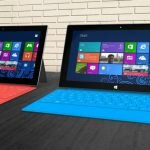
Technology of today continues to amaze people with its recent developments. It has spilled over in different industries. In hospitals for example, healthcare IT systems are now helping professionals have access to data which they could easily pull out from a cloud environment. Now, Apple’s ResearchKit is delivering healthcare technology to the public, which gathers data from ordinary people.
ResearchKit was introduced to the market two years ago. This can gather health data, where researchers can use the information in here to conduct their own studies. Some say that this is one of the most innovative technologies in the healthcare industry, while others on the hand are still skeptic and say that this still has a long way to go.
Chief product officer and partner at Thread John Reites says that this healthcare app from Apple is useful in the research industry. The company launched two types of ResearchKit apps. The first one uses phone sensor data, integration of external data sources like air and weather quality, surveys, and dashboards. Reites says that this is needed in research today. The second type in comparison has the integration of data collection approaches and endpoints, a product of the research by Autism Speaks and Epiwatch among other.
Reites claims that clinical researchers are finding it valuable to have the ability to conduct remote patient research, but were challenged in the past on implementing it. He adds that many organizations are now considering making a shift to using mobile technology for support.
Apps like the ResearchKit provide potential in engaging the patients to participate in research work, which could change the way how medical data is managed, analysed, and gathered according to the managing director of digital health services at global consulting firm Accenture, Brian Kalis.
Will the future of healthcare IT systems, including research, consist of apps? Like any other new technology, there are also those that say that the ResearchKit is still lacking in a lot of ways. CEO of ProofPilot Matthew Amsden thinks that this is not yet medically useful. He understood that Apple wanted to take advantage of the massive number of users of iPhones in collecting health data, but reiterated that even with its use, it is still difficult to come up with a generalized finding just like in the asthma study published in Nature.









